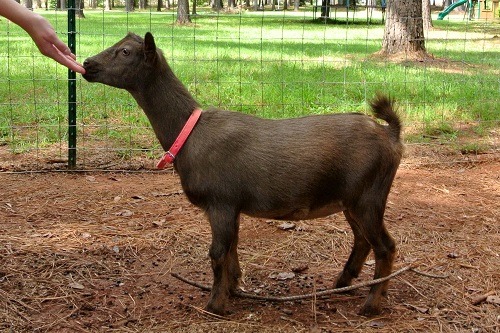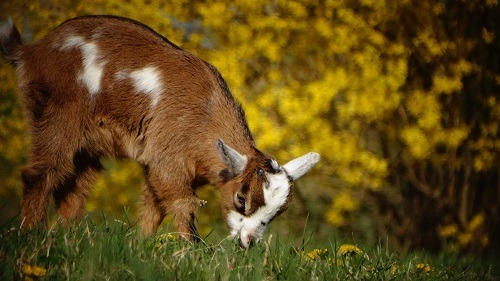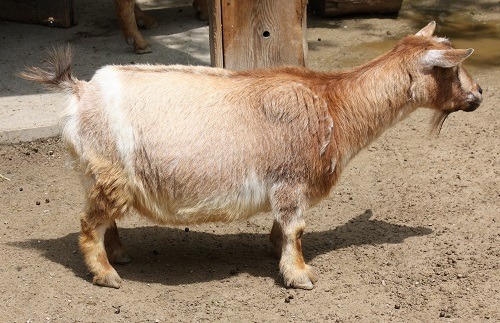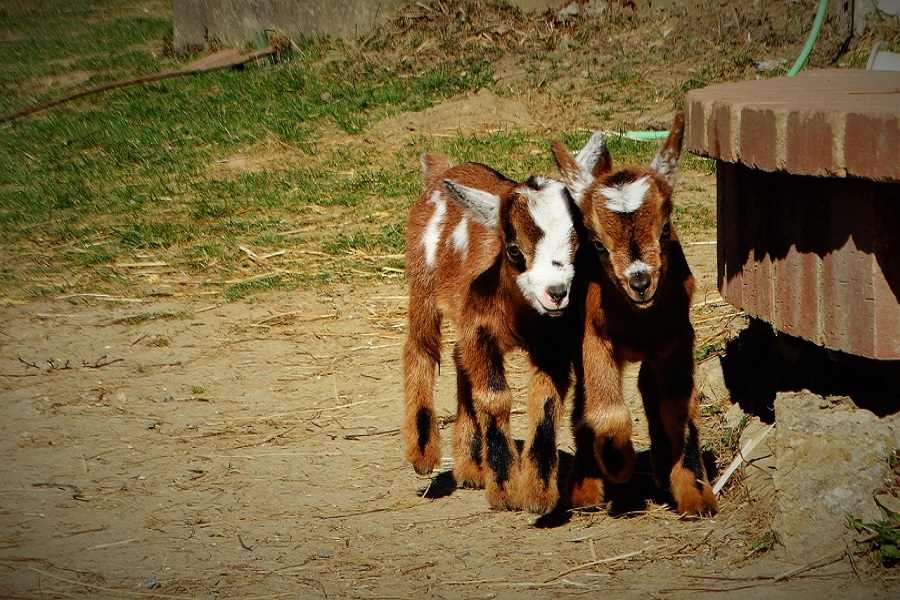Nigerian Dwarf Goats and Pygmy Goats are among the best miniature breeds that are easy to manage and maintain. And if you are new to the field of raising farm animals, these animals would be perfect for you. But which one would you choose amongst the two, Nigerian Dwarf goat or Pygmy goat? Read on to find out the differences and similarities between the two goat breeds and choose the one that best fits you.
Nigerian Dwarf Goat Vs Pygmy Goat: Origin
Both Nigerian Dwarf goats and Pygmy goats originate from West Africa, which is home to many breeds of goats that have dwarfism as a dominant inherited trait. Achondroplasia, the genetic disorder that makes them dwarfs, results in them having shorter arms and legs but with a normal-sized torso. These breeds with hereditary dwarfism were brought into the United States for medical research and breeding programs. It was mainly aimed at creating companion animals or pet goats. And the research and breeding resulted in two types of miniature goats that were small but different in build. The goat that had a stocky profile was named American Pygmy goat, while the other one with a slightly delicate frame was named Nigerian Dwarf goat. Later, Nigerian Dwarf goats were found to be good for small-scale dairy production, which gradually added them to the category of dairy goats.

Physical Differences Between Nigerian Dwarf Goats and Pygmy Goats
Since both breeds are miniature goats, those with no prior knowledge often get confused between the two breeds. The most significant point of distinction is the color of their eyes. While Pygmy goats have brown eyes, Nigerian Dwarf goats spot bright blue eyes. They are the only goat breed that can be distinguished by this distinct eye color. They have different body shapes as well. Pygmy goats have barrel-shaped bodies with short legs, whereas Nigerian Dwarf goats have longer bodies accompanied by curves. Pygmy goats tend to be stockier and more muscular than Nigerian Dwarf goats, which have longer legs and necks.

Nigerian Dwarf goats come in a variety of colors and color combinations, while the choices are limited among Pygmy goats. They usually come in caramel, black, patterned, black, brown and gray agoutis, etc. Pygmy goats also have horns which are less common among Nigerian Dwarf goats. Their heights also come close to each other, with Pygmy goats growing to a maximum of 21 inches and Nigerian Dwarf goats reaching up to 23 inches. A fully grown Nigerian Dwarf goat will weigh about 75 lbs., while a Pygmy goat will weigh somewhere between 55 to 88 lbs.
Nigerian Dwarf Goat Vs Pygmy Goat: Milk Production
Nigerian Dwarf goats, with their dairy goat-like build, are known for their milk production. They are hence kept in farms and small-scale dairy productions because of the quantity of milk they produce and the quality of it. And these days, this breed is mainly bred for milk production, sticking to these factors, and not for show, as was practiced in the past years. They can produce up to 1.5 quarts of milk a day on average, making them one of the best dairy goats. They breed once a year only but can lactate for about ten months. Also, the taste of the milk they produce is said to be top-notch, with its natural sweetness and creaminess. And since these goats have multiple uses, their prices often tend to go up.

Pygmy goats, on the other hand, are not dairy goats but mainly pet goats. Most of the nutrition they derive from their diet goes into managing and maintaining their muscles. This does not mean they do not produce milk. They can produce 1 to 2 liters of milk every day, and they can lactate for about 120-180 days. Their milk, which has a higher butterfat content compared to other commonly raised dairy goats, can be used to make dairy products like cheese and yogurt and to make soaps. They can be bred more than once a year as well. The problem in keeping Pygmy goats as dairy goats is the smaller udders and legs these goats have. This makes it difficult to milk them.
Similarities Between Nigerian Dwarf Goats and Pygmy Goats
Both Nigerian Dwarf goats and Pygmy goats are essentially goats and have all the common traits that goats have. Both breeds are extremely playful and funny, making them total entertainers. Both are intelligent and friendly to be with and are the perfect companion animals. Their compact sizes are a plus point that makes them amazing pets that could be kept even in your backyards and in residential neighborhoods. Their calm and friendly interactions with the children too make them among those breeds of goats that have good temperaments. Both have a similar gestation period that spans about 145 to 153 days.
Which One is the Best?
To pick one as the best of the two breeds is a difficult task, and it solely depends upon your requirements and priorities. Both Nigerian Dwarf goats and Pygmy goats are excellent and vibrant in their own ways. So, if you are looking for a miniature goat for a farm or for milking purposes, a Nigerian Dwarf goat will be the perfect fit. They are a balanced blend of small size with maximum utility. And on the other hand, if you are planning for a small goat that you can keep around as a pet or companion animal, a Pygmy goat will suit you for that purpose.
Feeding Miniature Goats
Goats are grazing animals that love to browse and have their fill. So, if you have pastures, make sure that you take them out to graze and give them much break so that they can indulge in the rechewing process exclusive to ruminants. And if you are housing the goats in a city or backyard where pastures are not readily available, you can feed them hay, grains, and other goat feeds that you can find in the market. But be cautious to look out for elements in them that can be harmful to them. You will also have to supplement their diet with essential minerals and vitamins regularly and have them vaccinated on time. If you are getting a Nigerian Dwarf goat for milk production, special care must be given to their diet as they require much more nutrition while lactating.
Conclusion
Nigerian Dwarf goats and Pygmy goats are miniature goats that have their own perks and qualities. They are a lovely bunch of animals that make great pets and farm animals. So, if you are planning to get one, be sure of your needs and requirements and whether you have the basic amenities to keep them safe and out of harm. Goats are famous escape artists, so you must be extra cautious about keeping them, or else they could just land on the neighbor’s garden patch.



![Can Goats Swim? [Plus How to Treat a Wet Goat?] can-goats-swim](https://donkeyonfarm.com/wp-content/uploads/2023/06/can-goats-swim-270x180.jpg)
![How to Care for a Pregnant Goat [Tips to Keep Them Happy] how to care for a pregnant goat](https://donkeyonfarm.com/wp-content/uploads/2023/08/how-to-care-for-a-pregnant-goat_11zon-270x180.jpg)
![What Are Fainting Goats? [Why Do They Faint?] what are fainting goats](https://donkeyonfarm.com/wp-content/uploads/2023/07/Myotonic_Goat_-_17003671880_11zon-270x180.jpg)
![How Much Space Does a Pygmy Goat Need? [Plus Some Facts] how much space does a pigmy goat need](https://donkeyonfarm.com/wp-content/uploads/2023/07/pygmy-goat-1-270x180.jpg)